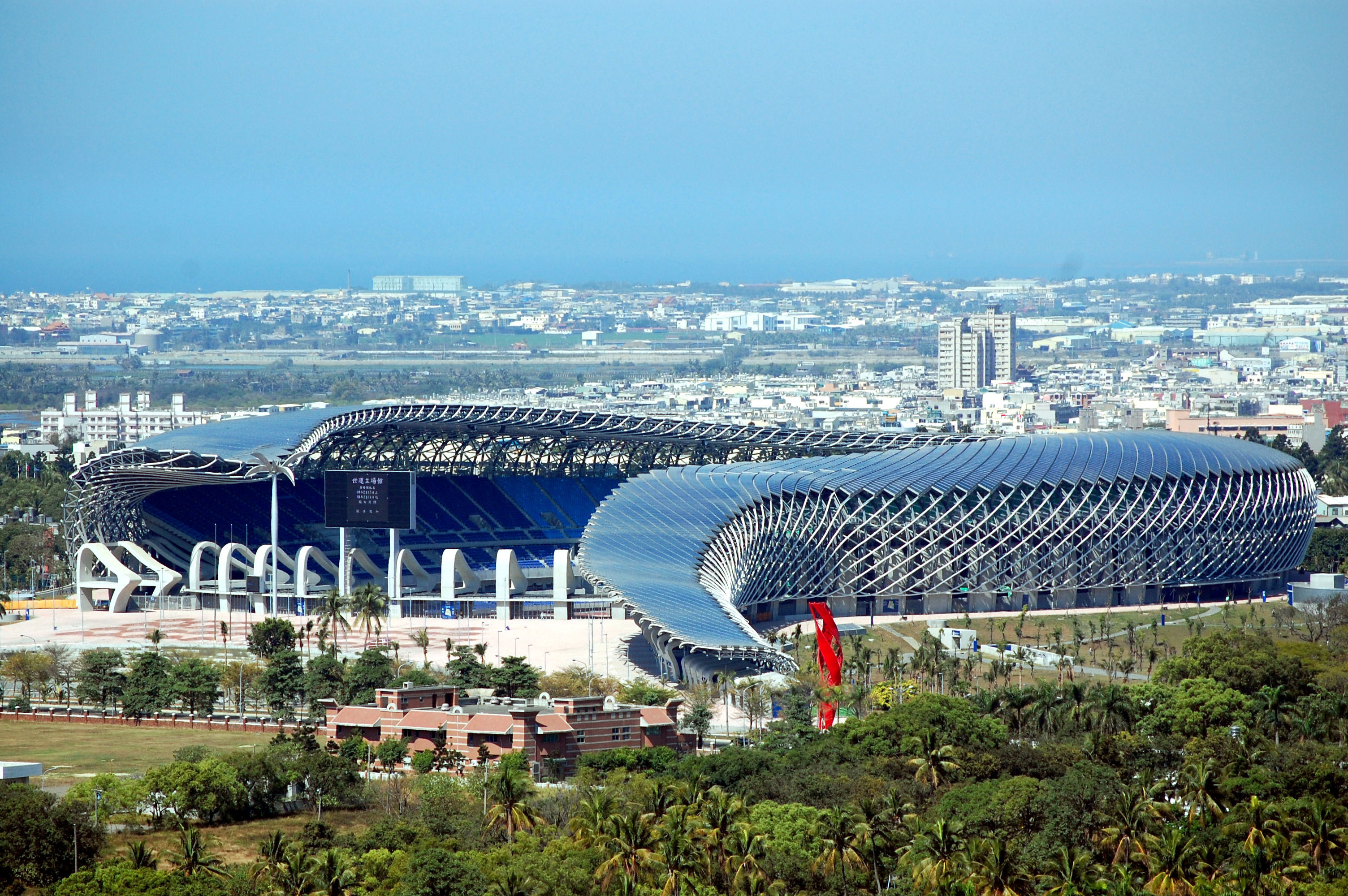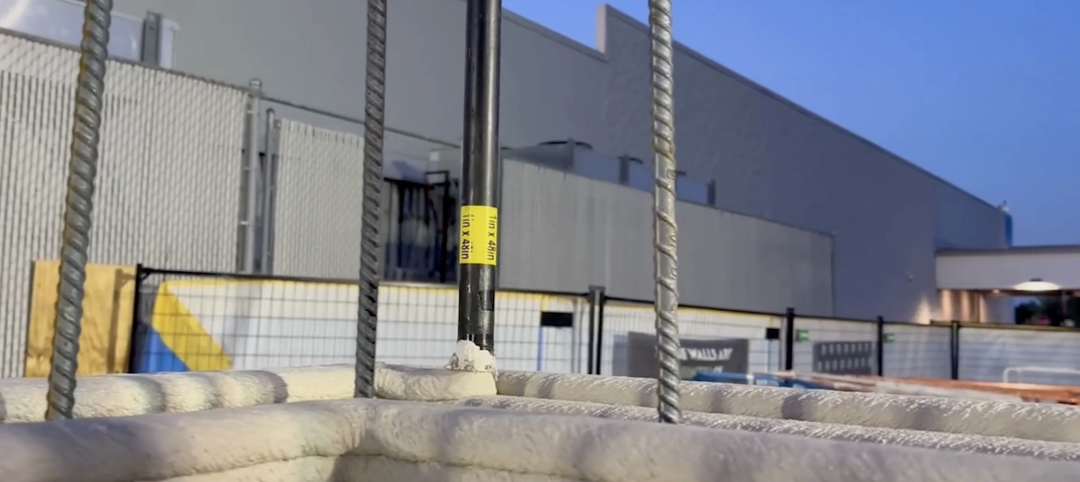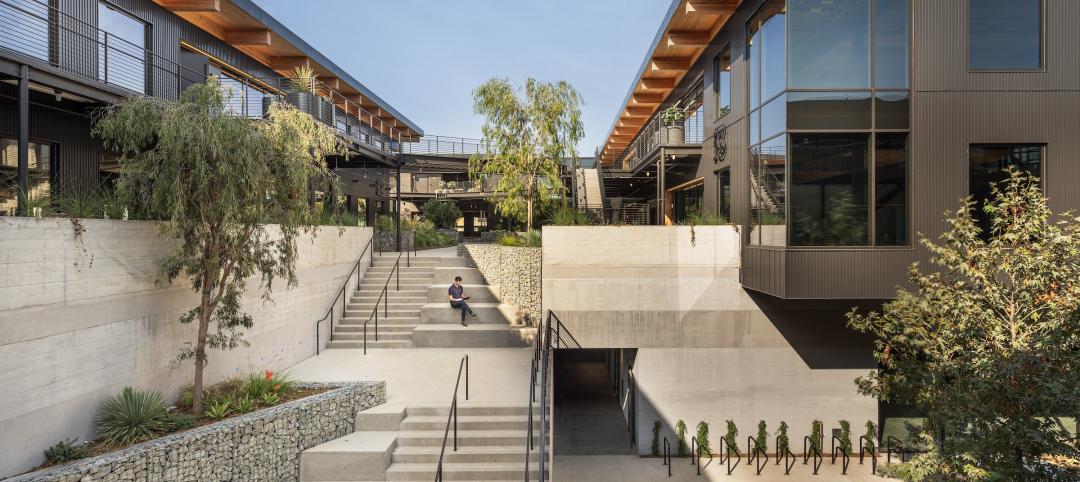Kaohsiung Stadium, the main venue of the 2009 World Games, made its spectacular debut in July 2009. Designed by Toyo Ito & Associates, one of the top architects in Japan, and Ricky Liu & Associates from Taiwan, the stadium can hold 45,000 spectators.
In addition to its eye-catching, horseshoe-shaped appearance, the building is the first stadium in the world powered by solar energy, and has been awarded the “Green Building Certification” by the Taiwan authorities.
Search for an effective panel fixing solution
In order to maximize the natural daylight, 8,844 solar panels were strategically mounted around the roof of the stadium. The solar panels generate more than one million kilowatt-hours of electricity per year, which supports approximately 80 percent of the stadium’s energy needs. To achieve this success, architects and contractors needed to resolve a series of technical issues related to the built-in panels. The job required an effective panel fixing design with optimum energy transfer rate, plus excellent thermal and weathertight performance.
Four-sided structural sealant glazing saves the day
Dow Corning was consulted from the very beginning of the project, and ultimately recommended using four-sided structural sealant glazing to bond the glass solar panels to aluminum sub-frame. This approach maximizes the daylight exposure and hence the generation of clean solar energy by the solar modules. Each unit of the roof façade system has three glass panels, including two solar glass panels (containing solar cell and low-iron glass panels) and one blue tinted tempered glass pane. Dow Corning 983 Structural Glazing Sealant was used for bonding the solar panels and weatherproofing.
Key Participants
Construction Office, Public Works Bureau, Kaohsiung City Government
Toyo Ito & Associates
Ricky Liu & Associates
Fu Tsu Construction
Delta Electronics Inc.
Dow Corning - Silicone Sealant ProviderProducts
Dow Corning 983 Structural Glazing Sealant
With the proven, silicone-bonding technology, the structural silicone not only helps this horseshoe-shaped solar roof building withstand earthquakes, acid rain, typhoons, humidity and extreme heat and UV radiation, but also improves its thermal and acoustic performance by continuous and effective sealing the facade. Dow Corning provides a complete solution, including high performance sealants and professional technical support, which ensures correct sealant application and long-term performance.
Leading the way for more BIPV success
The Kaohsiung World Games Main Stadium was the first 4-sided structurally glazed BIPV (Building Integrated Photovoltaic) roofing project that Dow Corning participated in Greater China. It is one of the largest BIPV projects in Greater China. Dow Corning silicone structural sealants allow creativity and design freedom, combined with lower life-cycle cost and improved thermal and acoustic performance of the facade. Dow Corning structural glazing sealants are now widely used in major BIPV facades in China, including the 2010 World Expo China, National Pavilion and Theme Pavilion.
Click here to view a short animated presentation about how Dow Corning solutions and support helped to create this revolutionary solar-powered stadium.
Or, to learn more about the Dow Corning products featured in this case study, as well as our many other proven materials for the construction industry, please click here. To speak to your nearest Dow Corning representative, visit dowcorning.com/ContactUs. +
Related Stories
Sustainability | Sep 18, 2024
3 living buildings made by a living practice
Prompting humans to reexamine our relationship to the environment, architecture creates the opportunity for us to physically experience ideas of beauty, performance, and structure through the distinct lens of place.
3D Printing | Sep 17, 2024
Alquist 3D and Walmart complete one of the nation’s largest free-standing, 3D-printed commercial structures
Walmart has completed one of the largest free-standing, 3D-printed commercial structures in the US. Alquist 3D printed the almost 8,000-sf, 20-foot-high addition to a Walmart store in Athens, Tenn. The expansion, which will be used for online pickup and delivery, is the first time Walmart has applied 3D printing technology at this scale.
Retail Centers | Sep 17, 2024
Thinking outside the big box (store)
For over a decade now, the talk of the mall industry has been largely focused on what developers can do to fill the voids left by a steady number of big box store closures. But what do you do when big box tenants stay put?
Government Buildings | Sep 17, 2024
OSHA’s proposed heat standard published in Federal Register
The Occupational Safety and Health Administration (OSHA) has published a proposed standard addressing heat illness in outdoor and indoor settings in the Federal Register. The proposed rule would require employers to evaluate workplaces and implement controls to mitigate exposure to heat through engineering and administrative controls, training, effective communication, and other measures.
Codes and Standards | Sep 17, 2024
New California building code encourages, but does not mandate heat pumps
New California homes are more likely to have all-electric appliances starting in 2026 after the state’s energy regulators approved new state building standards. The new building code will encourage installation of heat pumps without actually banning gas heating.
Mass Timber | Sep 17, 2024
Marina del Rey mixed-use development is L.A.’s largest mass timber project
An office-retail project in Marina del Rey is Los Angeles’ largest mass timber project to date. Encompassing about 3 acres, the 42XX campus consists of three low-rise buildings that seamlessly connect with exterior walkways and stairways. The development provides 151,000 sf of office space and 1,500 sf of retail space.
Education Facilities | Sep 16, 2024
Hot classrooms, playgrounds spur K-12 school districts to go beyond AC for cooling
With hotter weather occurring during the school year, school districts are turning to cooling strategies to complement air conditioning. Reflective playgrounds and roads, cool roofs and window films, shade structures and conversion of asphalt surfaces to a natural state are all being tried in various regions of the country.
Office Buildings | Sep 16, 2024
Maximizing office square footage through ‘agile planning’
Lauren Elliott, RID, NCIDQ, Director of Interior Design, Design Collaborative, shares tips for a designing with a popular and flexible workspace model: Agile planning.
3D Printing | Sep 13, 2024
Swiss researchers develop robotic additive manufacturing method that uses earth-based materials—and not cement
Researchers at ETH Zurich, a university in Switzerland, have developed a new robotic additive manufacturing method to help make the construction industry more sustainable. Unlike concrete 3D printing, the process does not require cement.
Libraries | Sep 12, 2024
How space supports programming changes at university libraries
GBBN Associate Sarah Kusuma Rubritz, AIA, uses the University of Pittsburgh's Hillman Library to showcase how libraries are transforming to support students’ needs.

















